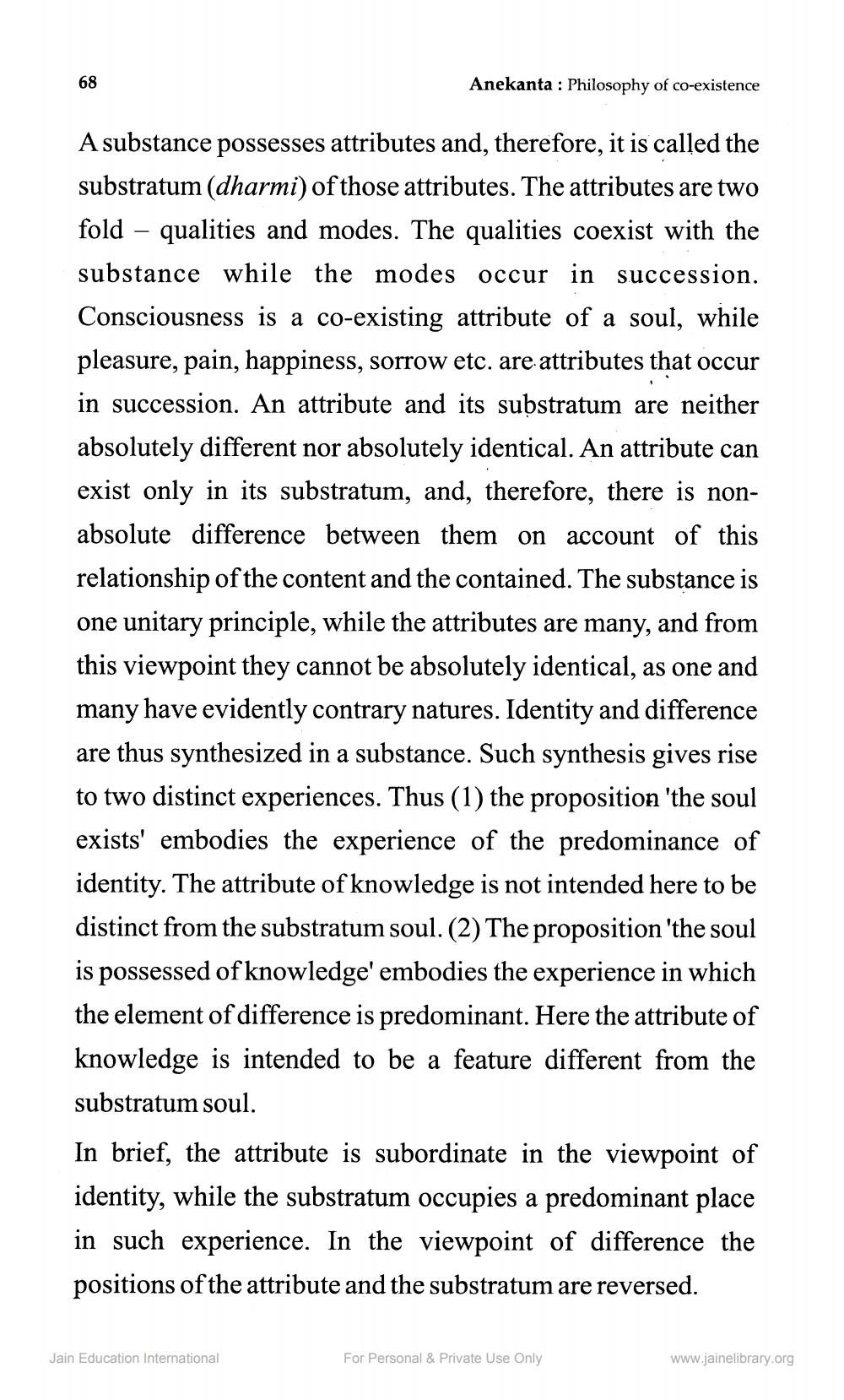________________
Anekanta : Philosophy of co-existence
A substance possesses attributes and, therefore, it is called the substratum (dharmi) of those attributes. The attributes are two fold – qualities and modes. The qualities coexist with the substance while the modes occur in succession. Consciousness is a co-existing attribute of a soul, while pleasure, pain, happiness, sorrow etc. are attributes that occur in succession. An attribute and its substratum are neither absolutely different nor absolutely identical. An attribute can exist only in its substratum, and, therefore, there is nonabsolute difference between them on account of this relationship of the content and the contained. The substance is one unitary principle, while the attributes are many, and from this viewpoint they cannot be absolutely identical, as one and many have evidently contrary natures. Identity and difference are thus synthesized in a substance. Such synthesis gives rise to two distinct experiences. Thus (1) the proposition 'the soul exists' embodies the experience of the predominance of identity. The attribute of knowledge is not intended here to be distinct from the substratum soul. (2) The proposition 'the soul is possessed of knowledge' embodies the experience in which the element of difference is predominant. Here the attribute of knowledge is intended to be a feature different from the substratum soul. In brief, the attribute is subordinate in the viewpoint of identity, while the substratum occupies a predominant place in such experience. In the viewpoint of difference the positions of the attribute and the substratum are reversed.
Jain Education International
For Personal & Private Use Only
www.jainelibrary.org




